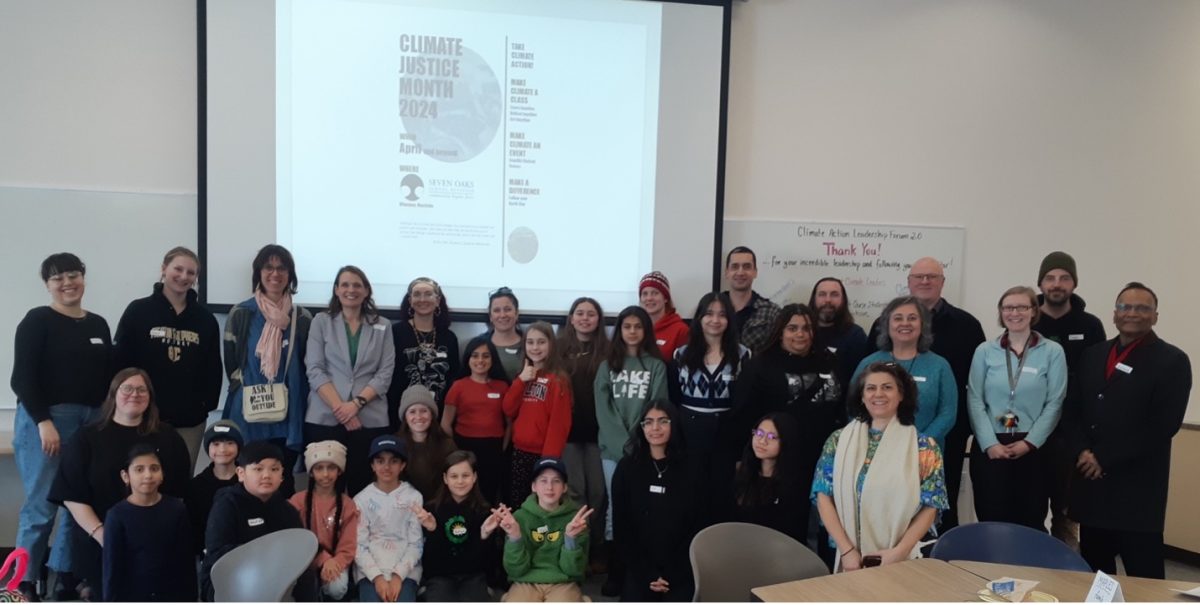
Heather Eckton and her Vision for Climate Change Education
Heather Eckton is a PhD student at the Faculty of Education and a SSHRC Doctoral Fellowship recipient. Eckton’s research is driven by a belief in the power of education and her concern for planetary regeneration. The study research questions are guided by her North Star focus on “excellence in climate change education, transformational learning, and restoring an ethic of care for the Earth in children and youth.”

Heather Eckton, PhD student
Heather Eckton has worked as a teacher for 21 years in the Seven Oaks School Division and serves as the Climate Action Divisional Teacher Team Leader. In her role, she supports 28 schools with over 12,500 students in embracing climate actions rooted in climate justice, sustainability, and global citizenship. “I believe in student and educational leadership and the inherent gifts of all learners, nurturing these gifts to inspire hope and action.”
“I have a tremendous gratitude to the Indigenous peoples that have cared for these lands since time immemorial and continue to fight for land and water protection. Indigenous knowledge and wisdom offer invaluable opportunities to restore the Earth, as the deepest understanding of these lands, come from the Indigenous peoples.”
At the heart of the research is Eckton’s conviction in the capacity of children and youth to “make the world more beautiful and to inspire communities to create meaningful change. My vision involves helping learners and educators to embrace Participatory Action Research (PAR) as a catalyst for transformation.” This fellowship is not only about conducting research but also about Eckton’s efforts to support and assist Manitoba’s public schools and boards.
With increasing concerns over the mental health impacts of climate change, including eco-anxiety among youth, the role of educators includes becoming agents of change and empowering students. “By channeling fear into collective community climate action, we cultivate agency, purpose, and hope. Utilizing pedagogies like inquiry, project-based learning, land-based education, and experiential learning, we can ignite learners’ passion to become active participants in creating solutions and furthering their global competencies.”
Through longitudinal qualitative research, Eckton seeks to understand the evolving practices and perceptions of teachers as they engage in climate action projects with their students. “The goal is to develop recommendations for transforming schools and empowering learners as agents of change. Teachers must go beyond teaching the scientific facts of climate change, involving students in creating solutions and fostering an ethic of hope. This year-long Participatory Action Research study aims to achieve excellence in climate change education in Manitoba public schools.”
To new graduate students, Heather Eckton offers her own guided principle: to follow your North Star and inspire others to do the same. “The key takeaway from climate change education literature is that awareness alone does not lead to action; action leads to action, which can be transformative. It is crucial to invite children and youth to re-imagine a more beautiful world by embracing an ethic of care, eco-literacy, resilience, and empowering climate action for a more equitable world.”










